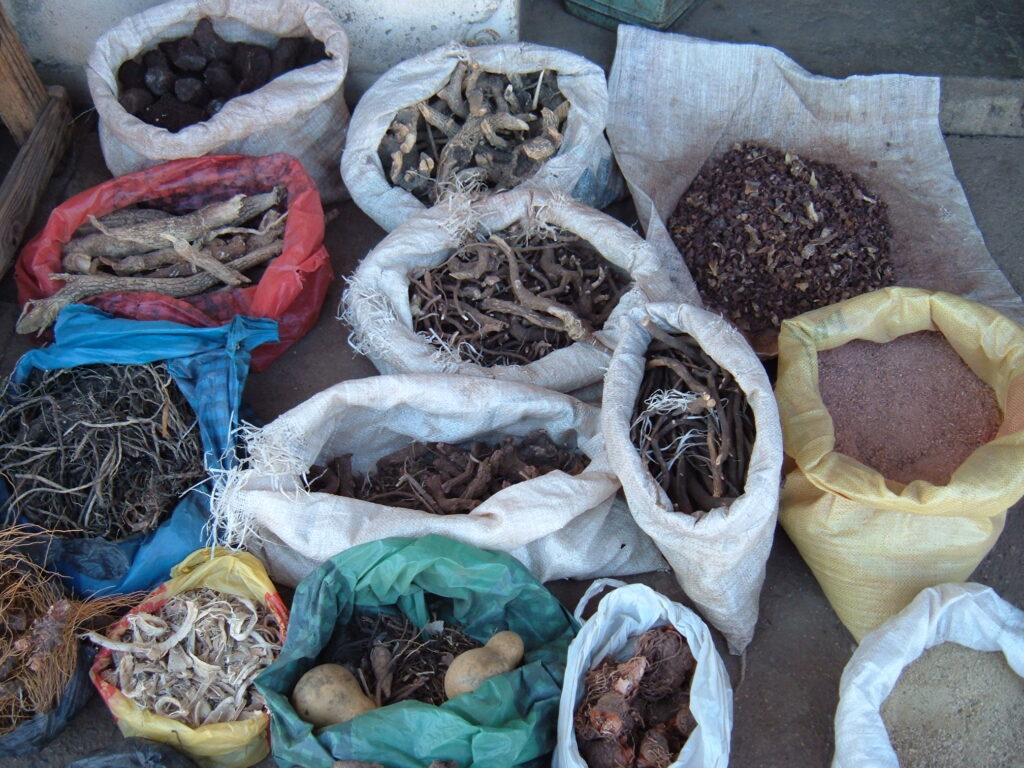In Africa, about 80% of the population rely on traditional medicine for their basic healthcare needs (WHO). Medicines from natural products are affordable, accessible and are generally safe.

Approximately 40% of today’s pharmaceutical products are based on natural substances, with many significant drugs originating from traditional medicine. Traditional medicine and traditional knowledge have contributed to breakthrough medical discoveries and there is a long history of herbal medicine being translated into effective treatments for health conditions.
The discovery of aspirin drew on traditional medicine formulations using the bark of the willow tree; the contraceptive pill was developed from the roots of wild yam plants; and child cancer treatments have been based on the rosy periwinkle. Nobel-prize winning research on artemisinin for malaria control started with a review of ancient Chinese medicine texts.
How is Herbal Medicine Different?
Pharmacologists prefer to identify, isolate, extract, and synthesize individual components from plants to harness their active properties, rather than using the entire plant. However, this approach can lead to issues. Plants comprise a variety of substances – minerals, vitamins, volatile oils, glycosides, alkaloids, etc. – which are important in supporting a particular herb’s medicinal properties.
These elements also provide an important natural safeguard as isolated active compounds can become toxic in relatively small doses; it usually takes a much greater amount of a whole herb, with all of its components to reach a toxic level. Thus herbalists consider that the power of a plant lies in the interaction of all its ingredients.
Herbs have been used safely for thousands of years in their whole form, which encompasses a complex mixture of many different compounds. Their synergistic effects maintain balance within the body whilst taking potent effect.
For example, the plant Meadowsweet contains salicylic acid, which is closely related to aspirin. In isolation this compound can cause internal bleeding from the stomach wall (a well-known side effect of aspirin) but Meadowsweet contains compounds called polyphenols, which protect and are healing to the stomach.
Why Traditional Medicine is Important in Modern Days
Emergence of drug-resistant strains of infectious diseases and dose limiting toxic effects are a growing concern worldwide. This calls for the search for new medicines, especially antimicrobials, from various sources.
The World Health Organization acknowledges the variety of traditional, complementary, and integrative medicine practices worldwide and their contributions to health, well-being, patient-centered healthcare, and universal health coverage. Properly integrated traditional, complementary, and integrative medicine practices can enhance health outcomes by increasing service availability, especially in primary healthcare settings. An evidence-based approach is essential; despite traditional medicines being rooted in long-standing practices and natural origins, it is vital to confirm their efficacy and safety via stringent clinical trials. WHO 2023
The swift and significant modernization of traditional medicine research methods holds the potential to unlock the promise of ancient knowledge for health and well-being. By drawing insights from traditional applications, new clinically effective medications can be discovered using research techniques like ethnopharmacology and reverse pharmacology.
Back to Jiwu Garab